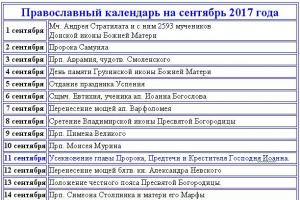During sexual intercourse, something unexpected can happen, it can happen contrary to circumstances, or a woman, while preparing for it, forgets to use contraceptives. All these events require urgent measures, especially if they occurred during the period when the woman entered the ovulation phase. Emergency contraception as a method of preventing unwanted pregnancy fully lives up to its name and is used quite often. The main requirement for her is the use of contraceptives no later than three days after sexual contact.
In what cases is EC needed?
Firefighter, as it is also called, contraception must be truly operational. The sooner a contraceptive is used, the higher the likelihood that an unwanted pregnancy can be avoided. In addition, her methods must be used strictly according to the instructions, otherwise the desired effect may not be achieved.
Contraceptives, which are classified as emergency contraception, contain a critical dose of hormones that actively affect the woman’s body. They do not allow sperm to penetrate into the uterine cavity, and create unfavorable conditions for the egg to attach to the endometrium.
The great advantage of such products is their availability, no need for a prescription and constant availability in pharmacies.
Urgent use of special-purpose contraceptives is required if:
- people did not plan sexual contact and were not ready for it;
- the man's condom broke;
- the woman forgot about taking contraceptives daily;
- her IUD or cervical cap fell out;
- the partner was unable to control himself, using the tactic of interrupted sexual intercourse;
- for various reasons, the ejaculate ended up in the woman’s genital tract;
- the numbers in the calendar were mixed up;
- spontaneous peeling off of the contraceptive patch occurred;
- the next injection of the drug was missed;
- rape happened, etc.
All these unpleasant circumstances may well lead to an unwanted pregnancy, and if the partners are not spouses or are not connected by love, then in the event of the birth of a child, an excessive burden will fall on them.
It also happens that a husband and wife are not yet planning to expand their family due to housing or financial circumstances and are preparing for parenthood a little later.
Representatives of the fair sex who have recently become mothers and are in the period of breastfeeding should avoid using such EC methods. And yet, if they are necessary, they can only be used once. But in this case, you can continue to breastfeed the baby only after a day or another period of time when the drug is completely removed from the body.
Despite the fact that such contraceptives are not the method of choice for preventing unwanted pregnancy, they are still preferable to abortion. Therefore, it is better to use them at the right time.
And it’s even better to be careful, not to enter into casual relationships, and carefully monitor the phases and use of daily contraceptives.
In addition, do not forget that most emergency contraception methods are not able to protect against sexually transmitted diseases.
Failure to conceive also does not guarantee the occurrence of negative reactions in the body. Therefore, after using such drugs, it is still advisable to donate blood for infections, do a smear for microflora, and also undergo an examination by a gynecologist.
EC methods and methods
Are used various options protection against unwanted pregnancy. The first type of contraceptives contains levonorgestrel. These drugs must be taken once no later than three, maximum four days that have passed since the intimate meeting. It is also possible for a woman to take one tablet twice every twelve hours. This is enough reliable method contraception, suppressing the ovulation phase.
This method of protection against unplanned pregnancy is reliable in approximately seventy percent of cases. How faster woman If she takes the necessary emergency contraception, the more confident she is that fertilization will not occur.
These drugs are quite safe, they have minimal negative influences on the body. But they are not suitable for permanent use. Excessive passion for them can lead to disruption of the menstrual cycle and changes in hormonal levels.
Second type of contraceptives is an intrauterine device with high content copper It must be urgently implanted no later than five days after sexual intercourse. Installation of an IUD may also become reliable protection from unwanted conception.
The action of the intrauterine device is reduced to the chemical contact of the ions of the substance with the vaginal mucus. They negatively affect both the ejaculate and the egg. This method of protection is almost one hundred percent effective.
After the IUD is installed, a woman can use it for three to five years, depending on the manufacturer’s recommendations. After this, she will decide for herself whether to continue using the IUD or choose another method of contraception.
This emergency method cannot be used if pregnancy has already occurred. In addition, individual intolerance to copper must be taken into account.
The third type of contraception is the use of daily combined oral contraceptives containing the hormones estrogen and gestagen. They should be taken according to a certain scheme: take two tablets immediately after sexual contact and two more twelve hours later.
When taking these drugs, you may experience various adverse reactions in the form of nausea or even vomiting. Therefore, if this happens within an hour after taking the contraceptive, then you need to take another pill. It is better to endure the unpleasant sensations right away, as they will soon pass and do not create additional stress on the body.
Means and preparations for emergency contraception
You can take a closer look at these effective methods for EC.
The use of pharmacological drugs includes pills that dramatically change a woman’s hormonal levels. For urgent protection against unwanted pregnancy, contraceptives containing Levonorgestrel or Mifepristone are used.

Levonorgestrel-dominant drugs(Postinor, Escapelle or Eskinor F):
- stop the process;
- prevent the appearance of an egg formed from a follicle;
- affect the composition of vaginal and uterine mucus.
These effects make it possible to create unfavorable conditions for the fertilization process.
In addition, they do not allow the egg to gain a foothold in the endometrium. The fallopian tubes stop actively contracting. The internal structure of the mucous membrane of the organ also changes, which leads to its rejection. After taking Postinor or Escapel, uterine bleeding immediately begins and does not stop for several days. Sometimes it coincides with the beginning of menstruation.
If a sperm penetrates the uterine cavity and manages to reach the egg, it will still not be able to attach to the endometrium. The embryo will not develop. The cells will die or remain immobilized and come out along with the ensuing bleeding.
Contraceptives containing Mifepristone(Zhenale, Miropriston, Mifegin or Pencrofton) also effectively stop the ovulation phase, affect the epithelium lining inner surface uterus, do not allow it to interact with the egg, and also create conditions unsuitable for fertilization. The organ itself significantly increases its tone and enhances contractility, which prevents pregnancy from occurring.
Combined contraceptives, taken according to the relevant recommendations (Logest, Marvelon, Mercilon, Microgynon, Miniziston, Novinet, Regulon, Rigevidon or Femoden). They actively influence the general hormonal background of a woman, thereby making the process of fertilization absolutely impossible. These pills are slightly less effective and are approximately eighty percent reliable. In addition, they have whole line traffic jams.
About application high copper intrauterine device has already been described in detail. It should be implemented no later than the fifth day following the sexual contact. Ions chemical substance actively influence the secretion secreted by the female genital organs, preventing possible fertilization. It is better not to use this method of contraception for women who do not yet have children, and especially for those who suffer from any diseases. For healthy women who have given birth, this method of contraception is recommended due to the fewest side effects.
Whether the contraceptive worked can be determined by some characteristic signs. These include the following important factors:
- menstruation did not appear three days after using EC;
- instead, weak bleeding appeared;
- breast enlargement began with swelling of the nipples;
- the woman feels sleepy all the time;
- she feels marked weakness, etc.
These signs indicate an incipient pregnancy. Therefore, before using any drug, you must carefully read the instructions for use attached to it. Any minor mistake can lead to fertilization occurring.
Folk remedies EC
Many women quite effectively use home methods to prevent unwanted pregnancy. They were used by our distant ancestors when there were no methods of contraception.
Folk remedies are especially indicated in cases where it is not possible to carry out any other procedure to protect against fertilization (the partners are in a distant village or the woman has many contraindications).
Of course, it is advisable to use more reliable methods of protection, but in such cases you have to get out of this situation on your own.
TO folk methods Emergency contraception most often includes:
- Vaginal microenema with citric acid. The solution is prepared as follows. A glass of boiled water is mixed with freshly squeezed juice or a teaspoon of the substance. After this, the stream is directed into the vagina and the product should remain there for at least ten minutes. Then you need to wash yourself well so as not to burn the mucous membranes.
- Application of manganese. A small amount of powder should be dissolved in a glass of water and douched. The solution must be pink, otherwise severe damage to the internal cavity of the organs may occur. Acidic environment prevents motor activity sperm. In this case, also after the procedure, you need to wash yourself thoroughly with a large amount of soap that creates an alkaline environment.
- Peel the lemon fruit, separate one segment and place it in the vagina. A sharply acidic pH will create extremely unfavorable conditions for conception. After applying this method, exposure is also necessary large quantity soap
- An Aspirin tablet inserted into a woman’s genital tract works in a similar way, which also creates a sharply acidic environment, neutralizing the activity of sperm.
- Immediately after sexual intercourse, a quarter of a piece should be placed in the vagina laundry soap, after wetting it. It should remain there for about half a minute, then it is removed and thoroughly washed with plenty of water.
It is not recommended to use these methods constantly. They can be used no more than three times a year. But, as a one-time emergency remedy, they are quite reliable. All of them have side effects and negatively affect the mucous membrane of the female genital tract. In addition, they can cause severe allergic reactions.
Contraindications
Emergency contraception, as already mentioned, should only be used in the most extreme cases. But even so, there are a number of contraindications to it.
The most common ones include:
- liver failure;
- cirrhosis;
- malignant neoplasms;
- tendency to bleeding;
- increased blood clotting;
- varicose veins;
- mastitis;
- myoma;
- early adolescence;
- pregnancy;
- breast-feeding;
- allergy;
- inflammatory processes;
- individual intolerance to substances included in contraceptives, etc.
These diseases do not allow a woman to quickly remove medications from her body, provoke an exacerbation of her chronic diseases and intensify the symptoms of inflammation.
In addition, even healthy women should not use EC constantly, much less take it into service as a daily contraceptive. This method can cause a number of complications in the body. Even its one-time use is permissible only in case of emergency, and it is completely unsuitable for regular use.
Side effects

However, even women who use emergency contraception only occasionally may experience a number of negative responses from the body. Among them, the most common is disruption of the menstrual cycle, the appearance of bleeding in the middle, a significant delay or too early onset of the next period. The process itself may also undergo dramatic changes. The discharge can become extremely scanty or excessively abundant, disappear completely within three days or drag on for ten days.
The duration of the menstrual cycle also changes in any direction, and there is also a loss of its regularity.
EC, as already mentioned, should only be used in the most extreme cases. And women must not forget that sperm are capable of long time remain in the genital tract, therefore, after the expiration of these contraceptives, nothing will interfere with the possibility of fertilization.
In addition, the time factor is of great importance. The sooner a certain drug was applied, the more reliable the result.
Despite the presence of a large number of side effects, women actively use emergency contraception. It is better to choose such contraceptives in advance in consultation with a gynecologist and have them in the house only for extreme case. Sometimes it becomes the only means of protection against unwanted pregnancy. Therefore, representatives of the fair sex take this risk in order to avoid an even more serious consequence in the form of abortion.
After using emergency contraception, a woman needs to think about choosing a permanent method of birth control that more reliably protects against the possibility of unexpected conception, and also has a minimum of contraindications and side effects.
Photo: CITAlliance/depositphotos.com
Emergency or postcoital contraception is intended to prevent pregnancy as a result of unprotected act and includes various methods and drugs. Its essence comes down to preventing the fertilized egg from attaching to the wall of the uterus and starting to develop. The effectiveness of this method directly depends on the time of taking the drug - the earlier the drug is used after sex, the higher its effectiveness.
When is emergency contraception needed?
If emergency contraception is taken within 24 hours of sexual intercourse, it is about 95% effective. If the tablet was taken after 25–48 hours, the effectiveness is reduced by 10%. If the product was used after 49–72 hours, the result is 55–60%.
This method can be used very rarely. Under no circumstances should it be used as permanent protection against unwanted pregnancy.
If a woman is breastfeeding, emergency contraception can be used in exceptional cases. To do this, you need to stop breastfeeding for one day until the drug taken is completely eliminated from the body. The use of emergency contraception is justified after physical violence and in cases where pregnancy may threaten the woman's health.
Types of drugs
These products differ in composition and method of application.
Combined oral contraceptives
Taken no later than three days after sexual intercourse. Drugs based on ethinyl estradiol (Marvelon, Miniziston, Microgynon, Femoden, Rigevidon) are usually taken several times. Products based on ethinyl estradiol (Non-ovlon, Bisekurin, Ovulen, Ovidon, Anovlar) should also be taken several times with an interval of 12 hours between doses.
Progestin-only oral contraceptives
The drugs are taken no later than two days after sexual intercourse. Nowadays it is not difficult to purchase escapelle and postinor at the pharmacy. Both medications contain a large dose of the hormone levonorgestrel. The drugs differ in the number of tablets: in escapelle - one, and in postinor - two.
Mifepristone
Mifepristone is not hormonal. Its action is aimed at suppressing the female hormone at the level of receptors in the uterus and increasing contraction of its muscles.
Mifepristone - effective remedy emergency contraception. It blocks the egg so that it cannot enter the uterine lining and also stimulates its rejection. It is used to terminate an unwanted pregnancy in the early stages. Mifepristone should only be used after consulting a doctor.
Intrauterine devices
T-shaped copper-containing intrauterine devices are inserted no later than five days after sexual intercourse in the gynecologist's office. If a woman is prescribed an intrauterine device as emergency contraception, then her individual characteristics, contraindications to the use of this method.
The effect of emergency contraception on the body
Doctors do not advise using this type of contraception all the time, as it has a bad effect on a woman’s reproductive system. In the future, this can lead to dysfunction of the ovaries.
With the constant use of purely progestin or combined contraceptives, the woman’s body receives small doses of the drug, designed for the entire menstrual cycle. Taking a hormonal drug does not disrupt the duration of the cycle, its normal cyclicity, and ovarian function becomes better. Hormonal problems, if any, are also eliminated.
If a woman takes the same drug for emergency contraception, then the body receives a dose of the hormonal drug that is many times higher. As a result of constant use of such contraception, the menstrual cycle will become anovulatory (without the formation of an egg), which threatens infertility.
Violation of normal ovarian function leads to the development of metabolic disorder syndrome. It is expressed in increased blood sugar, increased blood pressure, and the appearance of excess weight.
As for douching with various solutions, this method does not have the desired effect, since sperm penetrate into the cervix within 1 minute after intercourse. In addition, too frequent douching can lead to vaginal dryness and disruption of microflora.
Cons and side effects
Emergency contraception is completely useless while the egg is implanting in the uterus. The effectiveness of combined oral contraceptives can be observed only if the drug is used no later than 72 hours after sexual intercourse.
The first dose of progestin-only oral contraceptives should be taken no later than 48 hours after sex. Intrauterine contraception will be effective if these drugs were introduced into the uterus within 5 days after the act. Mifepristone should only be taken in a clinic setting under the supervision of a physician. Another disadvantage of Mifepristone is its high price.
Emergency contraception should be used only in exceptional cases, if there is simply no other option. It is advisable that it be used no more than three times a year. The less often the better.
The most common side effect of such methods is uterine bleeding, which occurs 2-3 days after administration. And some women, on the contrary, experience delays in menstruation with severe disruption of the menstrual cycle.
Other side effects such as dizziness, headaches, vomiting and diarrhea, and various allergic reactions are uncommon.
You may experience chest pain, rashes on your arms, legs, feet, and shoulders, blurred vision, difficulty breathing, and vomiting 2 hours after taking the tablet. This indicates an incorrect dose of the hormone.
When using Mifepristone, discomfort in the lower abdomen, vomiting, nausea, weakness, dizziness often occurs, and body temperature rises noticeably.
When using intrauterine contraceptives, during the first few days you may experience severe cramping pain in the lower abdomen and an increase in the amount of discharge during menstruation. In addition, there is a high risk of ectopic pregnancy due to disruption of the contraction of the fallopian tubes and the movement of the egg through them. Less commonly, spontaneous prolapse of the intrauterine device and damage to the uterus during its insertion may occur.
Contraindications for emergency contraception:
- intolerance to the components of the drug;
- previous hepatitis;
- diseases of the biliary tract or liver in severe form;
- puberty;
- ongoing pregnancy.
- The time for taking the dose of the drug should be chosen so that it is convenient to take the next one (for example, 21:00 and 9:00).
- To avoid unpleasant sensations (vomiting, nausea), it is best to take emergency contraceptive pills with low-fat milk.
- In the period before the start of the next menstruation, you need to use additional means of protection (barrier method).
- Emergency contraception is suitable for one-time use. For permanent protection, you need to choose a different method of contraception with your doctor.
- In cases of menstruation occurring a week or more late, you should consult a gynecologist to rule out pregnancy.
Popular means
Among the most well-known drugs for emergency contraception, the leading places are occupied by postinor and escapelle.
Postinor
Postinor is a popular drug that helps prevent unwanted conception. At correct intake With this remedy, as a rule, it is possible to avoid unwanted conception. The tablets contain a synthetically created analogue of the hormone levonorgestrel.
This hormone is also included in medications intended for routine contraception. However, its content in Postinor is significantly higher than in planned oral contraceptives.
Postinor should be taken at intervals of 12 hours. The package contains two tablets, one of which is drunk after sexual intercourse, and the second - after 12 hours. This medicinal product can prevent unwanted conception within three days (72 hours). Sometimes two doses are required. This may happen if vomiting occurs after taking at least one of the tablets and the drug is not absorbed. It is advisable to take these tablets after meals. This will reduce the risk of vomiting.
Postinor does not terminate an existing pregnancy; it can only prevent its development. This means that using the drug for abortion will not work. The advantage of postinor is that it does not harm the fetus, and the child can be saved.
Postinor does not prevent sexually transmitted diseases. If you have been physically assaulted or had unprotected sex with an untrusted person, consult a doctor immediately.
The drug, like other emergency contraceptives, may increase the risk of ectopic pregnancy. An ultrasound will show the location of the fetus if in doubt.
Escapelle
Unlike postinor, one capsule of escapelle contains 150 mg of the hormone levonorgestrel. Therefore, there is only one tablet in the package. The remedy is most effective if taken on the first day after unprotected sex. The drug may cause nausea and even vomiting. If vomiting occurs earlier than three hours after administration, then you need to re-use the escapelle.
The drug can provoke disruptions in the menstrual cycle, promote the appearance of bloody discharge from the vagina, cause a delay in menstruation, as well as chest pain. If your period is more than five days late, it is recommended to take a test to determine whether you are pregnant.
Discussion 1
Similar materials
Emergency contraception is considered the only way to prevent pregnancy after unprotected intercourse. There are several types of it, and each has its own positive and negative sides. 
In what cases can emergency contraception be used?
After unprotected intercourse, to prevent unwanted pregnancy. This could be pills or other medications.
The main condition for their use is a strict time frame - no later than 3 days after unprotected sex.
Taking a pregnancy test should be a mandatory step. If the result is positive, doctors strongly recommend that you stop taking emergency contraceptives. They can provoke the development of pathologies of the reproductive system.
Kinds
Emergency contraceptive methods are divided into several types depending on how they affect the body.
Intrauterine devices
Intrauterine devices include the installation of an IUD. It can be regarded as late contraception. Since the IUD is allowed to be installed within 5 days after sexual intercourse.
The method is not suitable for all women. In the presence of inflammatory processes of the reproductive system, the likelihood of an existing pregnancy and STIs, intrauterine urgent contraception is contraindicated. It is not advisable to use the spiral for young girls who have not given birth.
The main advantage of the method is that the hormonal levels remain normal. Ideal for young mothers as emergency or long-term contraception during breastfeeding.
The disadvantages of the intrauterine device are:
- High risk of ectopic pregnancy.
- Painful and prolonged adaptation of the uterus after insertion of the IUD.
- The risk of developing endometritis, because the cervix remains slightly open.
- Increased duration and abundance of menstruation with the introduction of non-hormonal IUDs. After installing Mirena, periods become scanty or stop completely.

Hormonal drugs
Drug contraception is the most common. There are many names of pills against unwanted pregnancy that are taken after sexual intercourse. They all have one thing in common - they contain large doses of synthetic analogues of progestogen or prostaglandins, which can affect ovulation and prevent implantation of the embryo.
Hematopoietic disorders;
Maintaining pregnancy after using emergency contraception
Maintaining pregnancy after using emergency contraception is possible in several cases.
- If the spiral is installed incorrectly. In the best case, the pregnancy will proceed normally; you just need to remove the IUD. In the worst case, the egg implants in one of the fallopian tubes, and surgery will be necessary.
- Contraception was used after 3 days after sexual intercourse or close in time to the ovulation phase. In this case, fertilization occurs without any pathologies, and the fetus is not in danger.
special instructions
Emergency hormonal contraception is not recommended to be used more than once every 3-5 months. There is the possibility of severe disruption of the reproductive system, followed by a long period of rehabilitation.
Gynecologists warn that unauthorized and unreasonable use of drugs can lead to serious failures of any organs or organ systems.
The best solution is to visit a specialist in advance, who, after studying the medical history, will be able to select the safest method of emergency contraception for the woman in the future.
Emergency contraception during lactation should be selected with special care so as not to harm the baby. Suitable for young mothers:
- Installing an intrauterine device is the safest method. There is no need for a feeding break. In the future, the IUD may become a long-term method of protection.
- The use of hormonal drugs based on gestagens. Such emergency contraception during feeding is acceptable under one condition - a break in feeding for 24 hours after taking the pill. At this time, it is necessary to regularly express milk and feed the baby with formula.
Emergency contraceptives were designed specifically for emergencies. It doesn’t matter what happened - whether the condom broke, she forgot to take a pill, or intimate intimacy was unwanted for the woman. One thing is important: if for some reason sex was unprotected and pregnancy was unwanted, you should think about protective measures right now, in the next three days - before it’s too late. 72 hours - this is the period given for using emergency contraceptive pills. How to use such drugs correctly and what should you know about their mechanism of action?
Is it possible to get pregnant if the condom breaks?
The answer to this question depends on what day of the cycle the unplanned sexual intercourse occurred:
- Intimacy in the first 7 days of the cycle is unlikely to lead to an unwanted pregnancy. During this period, the lining of the uterus is shed and monthly bleeding occurs. The maturation of the follicles has not yet begun, and sperm live in the woman’s genital tract for no more than 7 days. With a standard 28-day cycle, the risks are minimal. The shorter the total duration of the cycle (21-27 days), the higher the likelihood of conceiving a child with intimacy during these days.
- Sex close to ovulation (7-14 days) is highly likely to lead to the conception of a child. During this period, follicle maturation and ovulation occur. The egg released from the ovary has every chance of meeting a sperm and fertilization will occur.
- Sexual intercourse in the second phase of the menstrual cycle (14-28 days) does not threaten the unwanted conception of a child. The egg dies 24 hours after leaving the ovary. After the death of the egg, a corpus luteum is formed. Conceiving a child during this period is impossible.
Does this mean that after unprotected sex in the second phase of the cycle you can not drink and not worry about possible pregnancy? Yes, but only if the woman is absolutely sure: ovulation has already occurred, and more than 24 hours have passed since then. Women who use natural methods of contraception (fertility detection method) probably know the date of ovulation. In other situations, it is quite difficult to catch the moment the egg leaves the ovary. Any cycle failure can lead to ovulation being postponed indefinitely, and all calendar calculations will be incorrect.
If in doubt, it is better to take an emergency contraceptive pill than to have an abortion if you are pregnant.
How often can I take emergency contraceptive pills?
The instructions for drugs for postcoital contraception indicate that such drugs can be taken no more than once a month. Practicing gynecologists point out that such recommendations are incorrect. Emergency contraception is ambulance in case of emergency, and not a routine method of protection against unwanted pregnancy. Experienced doctors do not advise their patients to get carried away with such drugs, which cause significant harm to reproductive health.
One gynecologist, when asked “How often can you take post-coital pills?” answered categorically: “Once in a lifetime!” There is some truth in this, because the more often a woman takes such drugs, the higher the risk of developing complications in the form of menstrual irregularities.
When should you take emergency contraception?
- Unprotected sexual intercourse when no contraceptives were used at all.
- Cases of sexual violence where a woman was unable to protect herself from an unwanted pregnancy.
- Situations in which there is reason to believe that the contraceptives used were ineffective.
Regarding the last point, they particularly highlight:
- Missing a dose more than two times in a row.
- Pass for more than 3 hours.
- Delayed administration (timing depends on the specific drug).
- Loss or .
- Displacement or damage to the diaphragm or cap on the cervix.
- Tearing or slipping.
- An attempt at interrupted sexual intercourse, resulting in ejaculation into the vagina or external genitalia.
- Incomplete dissolution of spermicide before sexual intercourse.
- Incorrect definition of safe days for use natural methods contraception.
When is it not too late?
Emergency contraception should be taken no later than 72 hours after unprotected sex. The optimal effect is achieved if the tablet is taken on the first day after intimacy. There is evidence that postcoital contraceptives remain effective for 120 hours, but drug manufacturers do not guarantee the desired result.
To protect yourself from unwanted pregnancy, you need to take the pills strictly according to the instructions.
When can I take the postcoital pill again?
The regimen of use depends on the chosen drug:
- Postinor should be taken twice. The second tablet should be taken 12 hours after the first.
- Escapelle and Mifepristone are prescribed once. Repeated administration of the drug is not necessary.
- According to the Yuzpe method, COCs are used as emergency contraception. The first dose is taken 72 hours after unprotected intercourse. The second dose is prescribed 12 hours after the first dose of tablets.
As for the interval between repeated use of emergency contraceptives, the opinion of doctors is clear: the more, the better. There should be at least a month between taking post-coital pills.
Which emergency contraceptive pills are best?
All postcoital medications are effective in their own way if you take them on time and strictly follow the instructions for use. IN Lately in gynecology they are moving away from Postinor, giving priority to new drugs - Escapel and Mifepristone. These drugs need to be taken once, and thus eliminate the risk of insufficient effect from a forgotten second tablet.
All of these products have a large number side effects, so it is quite difficult to identify a safe one among them.
How much do pills cost after unprotected sex?
The price of the drug depends on its type and manufacturer:
- The average cost of Postinor and Escapel is 300-500 rubles.
- Mifepristone-based drugs will cost 350-600 rubles.
Can COCs be used for emergency contraception?
This scheme was developed in 1977, but it is not very popular. According to the Yuzpe method:
- Take the first dose of the drug within 72 hours after sexual intercourse.
- Take the second dose 12 hours after the first.
For emergency contraception, 8 tablets of a low-dose COC (containing 30-35 mcg ethinyl estradiol and levonorgestrel) taken in two doses (4 tablets of the drug) are used at once. The following products are suitable: Microgynon, Rigevidon.
This type of scheme is not popular in Russia, as there are more convenient and affordable means.
Do emergency contraceptive pills protect against sexually transmitted infections?
No, such drugs only protect against pregnancy, but do not provide protection against infections. Pathogenic microorganisms easily penetrate a woman’s genital tract and cause dangerous diseases. The following measures will help slightly reduce the risk of infection:
- Hexicon (candles).
- Betadine (suppositories).
- Miramistin (spray).
Antiseptics should be used in the first hours after unprotected sexual intercourse. These drugs do not provide 100% protection and practically do not protect against the penetration of HIV infection and viral hepatitis.
What happens if you get pregnant while on emergency birth control pills?
Women using Mifepristone for postcoital contraception should know that if the effect does not occur, they should consider terminating the pregnancy. When using the drug, there is a high risk of congenital malformations in the fetus.
Levonorgestrel-based drugs (Escapelle and Postinor) are contraindicated during pregnancy, but there is no evidence of an adverse effect of the drugs on the fetus.
Can breastfeeding mothers take emergency contraceptive pills?
According to the instructions, drugs for postcoital use penetrate into breast milk and are considered unsafe for children. Nursing mothers are prohibited from drinking such products. If there is an urgent need to take a contraceptive, you need to interrupt breastfeeding:
- for 24 hours for drugs based on levonorgesterl (Escapelle, Postinor);
- for 14 days for Mifepristone.
Do emergency contraceptive pills have an abortifacient effect?
The answer to this question depends on when the drug was taken:
- In the first phase of the cycle, postcoital contraceptives inhibit ovulation and interfere with the release of the egg. Conception in this case becomes impossible, and there is no talk about the abortive effect.
- In the second phase of the cycle, the tablets prevent the implantation of the fertilized egg into the uterine cavity. In this situation, a miscarriage occurs within 7 days. This is considered to be the abortifacient effect of the drug.
Important! After implantation occurs, emergency contraception methods are not used.
The effectiveness of drugs used after unprotected sexual intercourse is 85-95%. Despite all the possible disadvantages, such means are considered the best alternative to abortion. Even if the drug leads to termination of pregnancy as a result of impaired implantation of the fertilized egg, this will be the best outcome for the woman. In this situation, abortion will occur at very early and will pass with minimal consequences for reproductive health. On the contrary, termination of pregnancy at a later stage (after a delay in menstruation) threatens serious health problems, including infertility.
In contact with
 Unplanned pregnancy today is a pressing problem not only for young girls, but also for women who have long reached adulthood. Most representatives of the fair sex, in order to avoid the occurrence of such a problem, take care of a possible pregnancy in advance, resorting to the use of contraceptives. However, there are often cases when a woman needs to take emergency contraceptive pills.
Unplanned pregnancy today is a pressing problem not only for young girls, but also for women who have long reached adulthood. Most representatives of the fair sex, in order to avoid the occurrence of such a problem, take care of a possible pregnancy in advance, resorting to the use of contraceptives. However, there are often cases when a woman needs to take emergency contraceptive pills.
When to use emergency contraceptive pills
The harm of such drugs is undeniable, but despite the fact that most women are informed about this, they still remain quite popular in the modern world. Moreover, in certain cases, this is really the only way out of the current situation. It is worth noting that in any case, before using them, you must consult a professional gynecologist. It is worth considering the most common cases of emergency intervention:
- sexual intercourse was performed without the use of protective equipment;
- sexual intercourse was interrupted untimely;
- during sexual intercourse, the condom turned out to be defective and broke or slipped off at the wrong time;
- the girl was forced to have sexual intercourse without using contraceptives.
By the way, this problem very relevant for mothers who recently gave birth to their baby and are still breastfeeding. In this situation, you can use emergency contraception, but only if you stop feeding for about a day. During this time, all substances of the drug that are dangerous to the health of the newborn must be removed from the blood.
Names of emergency contraceptive pills and other rapid contraceptives
It is worth taking a closer look at the most effective, affordable and popular means for instantly protecting women from unwanted pregnancy.
- "Escapelle". This is a fairly new drug that acts as emergency contraception. The effectiveness of its action is determined 96 hours after unprotected sexual intercourse. The sooner you take the pill, the greater the chances of eradicating the problem. initial stage. One of positive qualities given medication- high content of levonorgestrel, which means there is no need to take the pill again
- "Postinor". It has not yet lost its popularity, but today it is the drug with the largest number of side effects. As a rule, after unprotected sexual intercourse, you need to take the first tablet of the drug within 48 hours, and after 12 hours, the second. Moreover, the effectiveness of the medicine directly depends on the timely taking of the second pill.
- "Ginepriston" and "Zhenale". They are one of the most widely used and available drugs today. It is worth noting that they are used not only as emergency contraception, but also as contraceptives, immediately before sexual intercourse. Professional medical specialists consider them absolutely harmless.
- When monitoring pregnancy up to 6 weeks, after a woman has experienced delays in her menstrual cycle, Mifegin is used. It is worth considering that this drug can only be administered by a licensed gynecologist.
- Finally, after the first 5 days of unprotected intercourse, it is quite effective to insert an intrauterine device into a woman’s vagina. In no case should the IUD be inserted if the girl was forced into sex, as the risk of contracting sexually transmitted diseases increases.
For many ladies, the relevant question is: will they affect birth control pills emergency action (urgent) on the formation of the baby’s fetus, in the event that it was still not possible to terminate the pregnancy with their help? Medical professionals mostly agree that these drugs do not have any effect on the health of the unborn child, and there is no need for an abortion. True, if the pills are taken when fetal cell division has entered the active phase, there is a high probability of miscarriage.
It is worth noting that if the name of emergency contraceptive pills is unfamiliar, in any case you should not take them without consulting your doctor - a gynecologist - this can seriously affect the health of the woman’s body. Emergency contraceptives and tablets are under no circumstances recommended to be used in the following situations:
- for severe and chronic diseases liver, kidneys, and bile ducts;
- after suffering from jaundice;
- at a time when pregnancy has already occurred (there is a high probability of miscarriage);
- in case of allergies to certain components of the medicine.
When a woman takes rapid birth control pills, she may often experience side effects. It is worth highlighting the most common of them:
- disruption of the menstrual cycle for approximately one week;
- bleeding from the vagina;
- feeling of tension in the mammary glands;
- severe headaches accompanied by dizziness;
- nausea and vomiting, and sometimes diarrhea;
- unpleasant pain in the abdomen (lower part).
.jpg) Even if you take medications such as instant birth control pills on your own, without consulting a doctor, you should not be embarrassed or afraid to come for an examination to a gynecologist. The fact is that pregnancy, as such, cannot be called a disaster. It would be a serious problem if the girl also became infected with any sexually transmitted disease.
Even if you take medications such as instant birth control pills on your own, without consulting a doctor, you should not be embarrassed or afraid to come for an examination to a gynecologist. The fact is that pregnancy, as such, cannot be called a disaster. It would be a serious problem if the girl also became infected with any sexually transmitted disease.
That is why, after having unprotected sexual intercourse, you should have your blood tested so that professional medical professionals can carefully check it and give an appropriate conclusion. However, in any case, it is necessary to protect yourself from pregnancy in advance if this phenomenon is undesirable for a woman, so as not to subsequently take emergency contraceptive pills and not harm your body.










